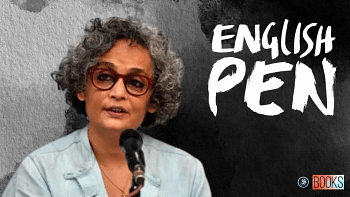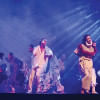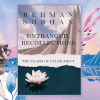Phire Dekha: Serajul Islam Choudhury revisits his life in his autobiographical speech

Dr Serajul Islam Choudhury, Professor Emeritus at the University of Dhaka, has written nonfiction books on different topics such as Marxism, literature and sociopolitics. His popular books include Shakespeare Er Meyera (Chitra, 1999), Gonotontrer Omosrin Poth (Suchipatra, 2006), Neta Jonota O Rajneeti (Shorobritto, 1987), Rabindranath Keno Joruri (Oboshor, 2017) and many more. The veteran writer passed his 89th birthday on June 23, 2024. On that occasion, the magazine Natun Diganta, of which he is an editor, arranged an open forum where he delivered an autobiographical lecture titled "Phire Dekha".
The forum was held at Bangladesh Shishu Academy and was anchored by Professor Azfar Hussain. In the beginning, he warmly welcomed the audience and briefly introduced the life and works of Serajul Islam Choudhury. A theatrical performance by the children of Bangladesh Shishu Academy, poetry recitation by Mustafa Morshed and Hasan Fakri, and a musical presentation by the Bibartan Shangskritik Kendra followed the introduction.

After the cultural performance, the forum chairman and the director of Bibartan Shangskritik Kendra ASM Kamal Uddin officially started the event. Before Serajul Islam Choudhury's lecture, there was a series of welcome speeches by veteran politicians of different leftist parties, such as Zonayed Saki, Mushrefa Mishu, Saiful Haque, Khalequzzaman, Mujahidul Islam Selim—all of them cited Professor Choudhury as their intellectual inspiration. Professor Khaliquzzaman Elias, Bangladesh Shishu Academy Director General, Anjir Liton, also welcomed Professor Choudhury.
Following, in his speech, Professor Choudhury shared his experiences of living in three different eras: united India, East Pakistan, and Bangladesh. He talked about how the deaths he had seen in these eras symbolised the era itself—a farmer's suicide under British rule, which made him realise what oppression these people lived under. He talked about Meherun Nesa, the self-taught martyred poet who had been hanged to death by the Pakistani Army. In his opinion, although Bangladesh had been liberated from outside forces, true freedom was yet to be gained by the Bangladeshi public; these unfortunate deaths are not an example of the past but ones that have transcended into the present and future.
Partition has always been a topic of great significance to Professor Choudhury, which is featured in his book, Jatiyotabad, Shamprodayikota O Jonogoner Mukti (Sanghati, 2016). So it was bound to come up in his speech.

A literary critic, Professor Choudhury spent a part of his speech talking about modernism, how the idea had come to Bengal and how it was tainted. He spoke about the intellectuals, poets and writers who were in love with the colonial powers, such as Nirad C. Chowdhury and Raja Ram Mohan Roy. These activists, he argued, represented the trend that to be modern, one has to side with the imperial powers and against the common people. On the other hand, activists and philosophers like Rebati Barman were truly modern in the sense that he questioned the establishment, and fought for the common people and their freedom. Modernity and renaissance, in his opinion, meant taking the future into one's hands and realising the human potential, which is signified by Rebati Barman, not Nirad C. Chowdhury.
Finally, he ended with the answer to a question posed to him by Khaliquzzaman Elias, "How does one stay hopeful amid a crisis like the one our country has fallen under?" To that, Professor Choudhury discussed the role of dreams in one's life. He spoke about how he has always believed in humanity, and how he has seen the goodwill among common people throughout his life. Yes, the capitalist system is exploiting humans every day, making human beings more and more isolated, but resistance also exists, however small. In the long run, humanity will win. This is the source of his optimism and hope, he stated.
Professor Serajul Islam Choudhury has been a beacon of hope in these troubled times, and his writings will be an inspiration for many who want to fight against injustice, and for the common people.
Sadman Ahmed Siam, as the name suggests, is indeed a sad man. He got sorted in Hufflepuff at Pottermore and has been sad ever since. Send him happy quotes at: [email protected].

 For all latest news, follow The Daily Star's Google News channel.
For all latest news, follow The Daily Star's Google News channel. 










Comments